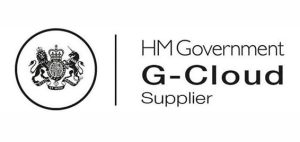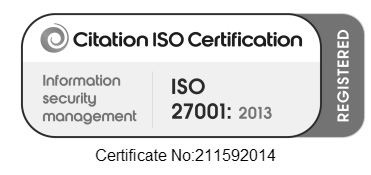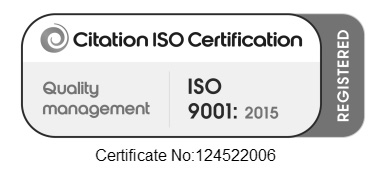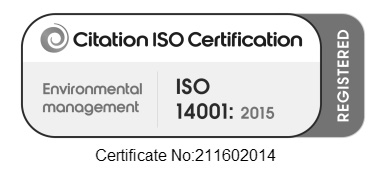Company culture plays a critical role in the trajectory of a business – and that’s never been a truer sentiment than in today’s employee-driven market.
For organisations that choose to outsource their IT needs in any capacity – whether wholly or partially, as a means to preserve precious internal resources and protect costs – the need to align the values and beliefs of a wider collective can become a challenging task. But positive collaborations and homogenous lines of thought can make the all-important difference between the success and failure of a project.
Although the decision to outsource is primarily made on rational factors, such as having an already-stretched team in the gear up for growth, culture is an aspect that is increasingly making its way into the decision-making process. If tackled strategically, this could result in a team of empowered employees who communicate openly with customers and leadership teams, operate with confidence and autonomy, strive for continuous improvement, and drive the business forward.
So, how can organisations ensure internal and external IT technicians work harmoniously? The Central team is here to give you a whistle-stop rundown.
Remove any layers of insecurity.
One of the most common misconceptions of outsourced IT support is that external managed providers are here to take jobs from the in-house team – which couldn’t be further from the truth. And in maintaining this line of thought, firms risk restricting their capabilities and limiting serious growth potential, productivity, and cost efficiencies across the board.
While it’s only natural for employees to ponder their position in the event of a new appointment, the role of the manager is to remedy this situation by scoping out the perfect match, suitably dividing workload between internal and external supports, and consciously managing change.
Involve employees at all levels.
The optimal outsourcing arrangement involves the commitment of an entire team, not just a C-suite decision-maker who has little to no involvement in day-to-day operations at HQ. Only by being completely transparent, and seeking the opinions of the entire collective, can organisations mitigate the risks of resistance.
Giving employees time to understand a potential IT partner – including the role they will play at augmenting resources – and inviting the opportunity to have input on their suitability will not only have a significant impact on culture, but it will also strengthen the position of the manager.
Acknowledge culture at the vendor selection stage.
Although it’s never too late to cut ties with something that’s not the right fit during any part of the outsourcing process, the best use of time and money would be to focus on culture from the get-go.
By bringing operational teams together to compare values, expertise, and communication styles, you can immediately formulate a picture of how fruitful a relationship will be. That’s not to say everyone needs to be a carbon copy of one another, just that they should complement one another as much as possible.
As an extension of your in-house team, cultural fit is an integral component of IT outsourcing success because it acts as the driver of engagement, performance, and productivity.
Employees who identify more with their company experience greater job satisfaction, happiness, and performance, are more committed to their role, and are more likely to stay with their organisation. And in such a difficult time for recruitment, retaining top talent is essential.
With all that in mind, in our quest for achieving an open culture, at Central we value:
While this guidance is not exhaustive – not least because organisational culture is relative from one team to the next – these practices should contribute significantly to IT outsourcing success.
Whether you’re outsourcing a single project or ongoing technical need, be sure to consider the interests of your existing employees – as well as commercial objectives – before making any signed-and-sealed decisions.
If you wish to exchange your own experiences or discuss more about the link between company culture and IT outsourcing success, please get in touch with one of our specialists. And don’t forget, you can catch updates from the Central team over on LinkedIn and Twitter too.
As the digital world continues to evolve, an unrelenting demand for technology-enabled change has come to the fore in recent years – with organisations seeking support to help streamline operations, support changing working patterns, spearhead digital transformation success, attract and retain talent, and combat geopolitical turmoil.
The reality is that firms of all shapes and sizes are struggling to keep their heads above the water. While turning to a third-party IT provider offers a significant host of benefits – suppressing the stresses of today’s business climate and boosting strategic growth – it’s a realm that continues to be tainted by illusions and misconceptions.
Armed with a clear-eyed understanding of its capabilities – and know-how on how to find the right partner – companies can reap significant benefits from outsourcing their IT needs.
So, the specialists at Central have clubbed together to debunk five of the most notorious myths surrounding external support. Let’s delve a little deeper…
1. It’s only suitable for large organisations
Businesses choose to outsource their IT needs for a variety of reasons – from redirection of internal overheads to call centre services and risk management. The key thing is, not only can you tailor support to your budget, you also have the option to outsource your needs wholly or partially.
Whether you’re a fledgling start-up or an established SME, investing in third-party support is an effective way to streamline productivity, streamline operations, reduce costs, and progress through various growth stages.
2. In-house jobs will be compromised
IT staff have long been opposed to outsourcing, due to the misconception that managed service providers could replace existing jobs – which couldn’t be further from the truth.
External IT partners and their respective organisations have a symbiotic relationship, working as a complement to one another as opposed to being in competition. Giving teams access to a wider set of skills and expertise – as well as an extra pair of hands to pick up the load – enables them to focus on the more revenue-generating tasks.
Here at Central, our specialist service desk staff can, for example, take the heat off your in-house team by using their core capabilities to get to the root of an issue fast. Any incidents that need to be referred back will have all the history – as well as the majority of the time consuming, initial troubleshooting – already complete.
3. It makes you lose control of your business
Once you have outsourced your IT needs, you can rest assured that power and authority still lie in your hands. While a managed service provider can offer advice, it’s ultimately your decision-making that will determine which technology will be implemented.
Communication and collaboration tools enable organisations to involve third parties to the extent they desire and interact in real time as and when they are required – whether on intermittent projects or for an ongoing need.
4. The only purpose is to cut operational costs
Of course, external providers can help significantly reduce costs in a whole host of areas – including training and recruitment – but that’s not the only value they can add to your IT strategy.
One of the primary reasons for outsourcing your business needs is that you should be able to ‘rest easy’ in the event of disasters – such as data breaches, phishing attacks, and nuisance network downtime. Whether these occur out-of-hours or your team are otherwise occupied, your IT provider will have it covered to help drive operations forward.
5. It guarantees lack of product or service knowledge
The core principal of outsourcing – not least in relation to Central – is an unequivocal dedication to customers and service. It’s not just about performing a task, but focuses on delivering exceptional quality, underpinned by a rich portfolio of experience and expertise, as well as a deep understanding of the firm they are serving.
Not only do managed IT providers commit to continuous development and learning throughout their teams, they also work hard to acquire specialist talent to bolster their skillset – which can be significantly more difficult in SMEs.
It goes without saying that outsourcing has it’s strengths and weaknesses – and it won’t necessarily be the best option for every team. However, by exploring an accurate depiction of the service, organisational leaders can make truly informed decisions on its suitability.
If you’d like to know more about outsourcing your IT requirements and third-party advisory, please don't hesitate to get in touch with a member of the Central team, today.






Central Networks are a strategic technology partner. Excellent technology is a given, customer service, trust and long-term relationships are what drive our business. We support CEOs, Heads of IT, IT technicians and transformation directors to ensure technology provides an edge to their organisations.
Company No: 02604843
VAT: GB 562 6919 13